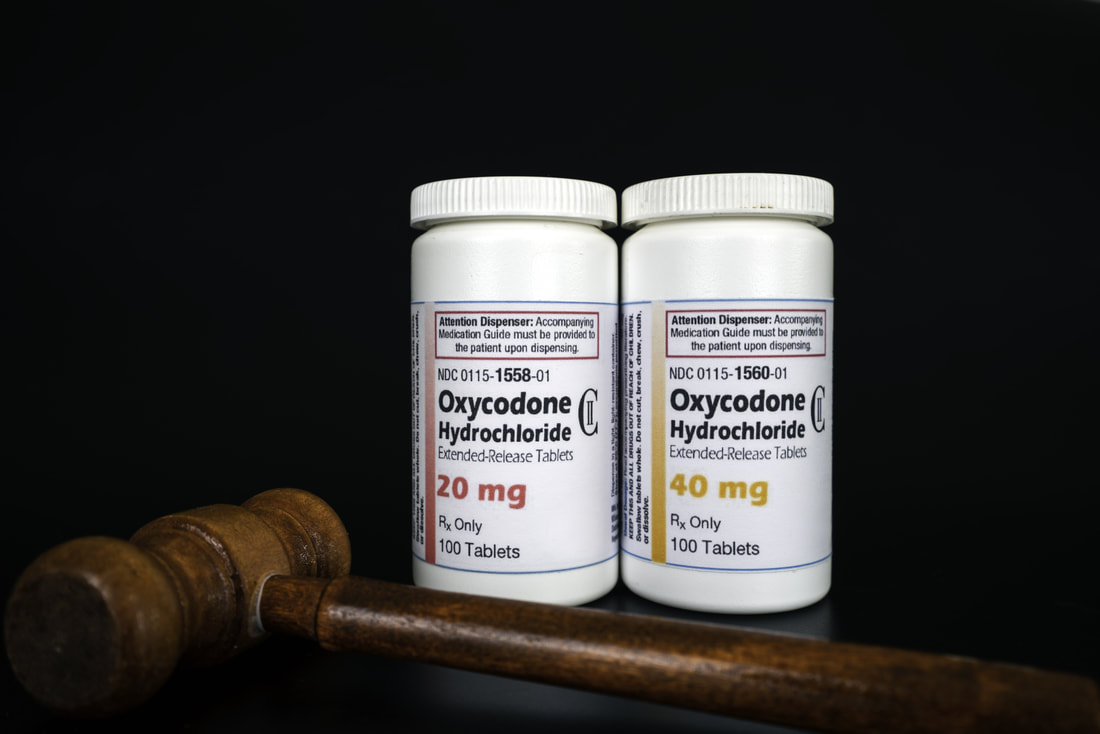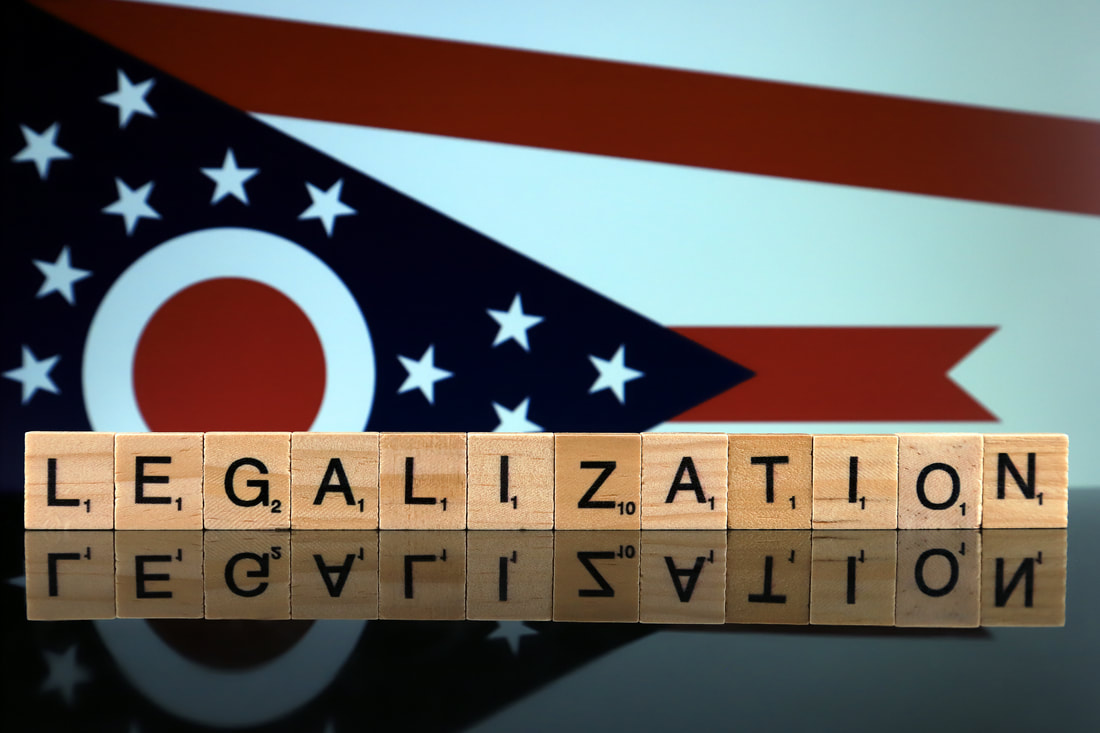|
SACRAMENTO, Calif. (AP) — California’s on-again, off-again plan to allow earlier potential prison releases for certain repeat offenders was off again Tuesday, pending an appeal by more than half of California’s 58 district attorneys.
Sacramento County Superior Court Judge Judith Craddick reinstated a temporary restraining order that was lifted last week by another judge. The order again temporarily prevents corrections officials from increasing good conduct credits for offenders with serious and violent criminal histories under the state’s “three strikes” law. The credits would go only to second-strike inmates serving time for nonviolent offenses who are housed at minimum-security prisons and camps. Twenty-eight of California’s 58 district attorneys moved to block the rule. Sacramento Superior Court Judge Shama Mesiwala ruled last week that the prosecutors lacked legal standing to challenge the regulations. Craddick renewed the stay to give prosecutors time to appeal Mesiwala’s ruling to California’s 3rd District Court of Appeals, and to give that court time to act. Corrections officials said they would comply with the new order.
0 Comments
(January 25, 2022, 6:50 PM EST) -- A trio of drug distributors will pony up almost $91 million to settle allegations from Rhode Island that they helped fuel the opioid crisis, according to a Tuesday announcement from Ocean State officials.
AmerisourceBergen Corp., Cardinal Health Inc. and McKesson Corp. have together inked a $90.8 million settlement with Rhode Island to settle its opioid claims, according to officials including state Attorney General Peter F. Neronha. "Through this settlement, we can bring in much-needed funding to the state and municipalities to respond to the challenges brought on by this epidemic, which have grown particularly acute during the COVID-19 pandemic," he said in a statement. "We've already seen the kind of powerful benefits funding like this can bring to our state." The deal announced Tuesday resolves the state's claims against the three distributors, and is outside the scope of a $21 billion nationwide settlement with distributors that other states have become a part of. The proposed national agreement is aimed at ending thousands of lawsuits filed by states and local governments and is geared overwhelmingly toward treatment and prevention of opioid abuse. It calls for Johnson & Johnson to fork over $5 billion and continue sharing clinical trial data with Yale University. It also calls for the distributors — AmerisourceBergen, Cardinal Health and McKesson — to shell out $21 billion and create a clearinghouse with data on their future opioid sales. A spokesperson for the Rhode Island attorney general's office confirmed to Law360 on Tuesday that the state was not taking part in that nationwide deal. Rhode Island's announcement said that with the $90.8 million deal, it will now see about $114 million in opioid recovery funds, as it has also inked deals with Johnson & Johnson and McKinsey & Co. In a statement to Law360 on Tuesday, AmerisourceBergen said it was "pleased to see the increased commitment to participation in the global settlement process, which will both expedite the flow of resources to communities impacted by the crisis while enabling the company to focus on ensuring the pharmaceutical supply chain is meeting the needs of health care providers and patients across the nation." Representatives for Cardinal Health and McKesson did not immediately respond to requests for comment on Tuesday. Rhode Island is represented by Adi Goldstein, Miriam Weizenbaum, Kate Sabatini, Dan Sutton and Neil F.X. Kelly of its Attorney General's Office, and Fidelma Fitzpatrick, Robert J. McConnell, Vincent Greene, Kate E. Menard, Linda Singer and Donald Migliori of Motley Rice LLC. AmerisourceBergen is represented by Shannon E. McClure, Louis W. Schack and Neil Hlawatsch of Reed Smith LLP, and Gerald J. Petros and Mitchell R. Edwards of Hinckley Allen & Snyder LLP. Counsel information for other defendants was not immediately available. The case is State of Rhode Island v. Purdue Pharma et al., case number PC-2018-4555, in the Rhode Island Superior Court. --Additional reporting by Jeff Overley and Emily Field. Editing by Adam LoBelia. California plans to write off an estimated $534 million in fines and fees that have accrued to justice-involved individuals in the state.
A landmark bill signed into law by Gov. Gavin Newsom last week will eliminate 17 fees charged to individuals involved in the state’s criminal justice system, lifting an estimated $534 million in debt―ranging from overdue court fees to unpaid traffic fines. “We know from our work to abolish and eliminate debt from locally controlled criminal administrative fees in San Francisco that these fees heap debt onto people on top of their punishment and create huge barriers to their re-entry,” said Debt Free Justice California, a coalition of 50 state organizations, in a statement welcoming the bill. “Fees are a terrible source of revenue. They’re charged to very low-income people who cannot pay them.” The bill is modeled in part on a measure launched in San Francisco in 2016 by San Francisco’s Financial Justice Project (FJP). Five years after its launch, the measure has provided debt relief to 21,000 San Francisco residents, lifted 88,000 holds on driver’s licenses and reconnected 17,000 people to public libraries, according to a recent FJP report. The project, aimed at reducing the burden of fines and fees on San Francisco’s low income communities of color, enabled them to waive $32 million in debts. “Municipal fines and fees, particularly stemming from the criminal justice system and traffic enforcement, do not take into consideration someone’s ability to pay,” reported the FJP in its first major assessment of the project. “This has created) significant burdens for San Franciscans with low incomes on top of the city’s already high cost of living.” The San Francisco measure, first in the country to end the burden of administrative fees in the justice system, has “galvanized a national movement,” Debt Free Justice said in a news release last year. The movement has picked up traction since then. Former New York City Mayor Michael Bloomberg raised more than $16 million to pay the court fines and fees of 32,000 formerly incarcerated Floridians so that they could vote in the November 2020 election. “For too long, we have watched our clients and their families struggle with debt that they are unable to pay,” said San Francisco Public Defender Mano Raju. “For justice-involved people who already have the cards stacked against them in so many ways, financial penalties create an even higher barrier to their future success. “I am very glad to see California now leading the country in this area. It’s now time for other states to follow suit. When we eliminate fees and debts, we are paving the way to more resilient communities.” The FJP report cited Urban Institute figures showing that 47 percent of San Franciscans are financially insecure as the city’s cost of living continues to rise. Fines, fees and debt — particularly those connected to the criminal justice system and traffic enforcement — further disadvantage low-income San Franciscans, since these fines don’t take into consideration someone’s ability to pay. “Fines and fees — often via suspended drivers’ licenses and impounded vehicles — can worsen household debt, damage credit scores, and make it difficult for residents with low incomes to access work, school, and healthcare,” says the FJP. Not only do fines and fees undermine the upward mobility of low-income residents — they disproportionately impact communities of color. Although Black residents comprise less than 6 percent of San Francisco’s population, they made up nearly 45 percent of people arrested for failure to appear or failure to pay traffic court warrants in recent years. In an effort to remedy these racial and economic disparities, San Francisco Treasurer José Cisneros and Director Anne Stuhldreher launched the FJP with a plan to work “with departments across local government to eliminate or find alternatives to fines and fees that disproportionately impact San Franciscans with low incomes.” By maintaining close partnerships with community organizations that assist low income people of color in San Francisco, FJP has identified “significant fine and fee ‘pain points’ and prioritized the highest-impact reforms.” FJP has also worked with the San Francisco Mayor’s Budget Office and local government departments to collect fines and fees data, creative inventories of fines and fees utilized across departments and identify the bills that most negatively affect San Franciscans with low incomes and communities of color. Most importantly, FJP identifies alternative solutions to fines and fees, which encompass three categories: basing the fine or fee on ability to pay, eliminating the fine or fee and identifying an alternative method to achieving the policy goal or offering non-monetary alternatives to payment. As a result of these efforts, San Francisco has seen a slate of improvements. The project also worked with San Francisco Mayor London Breed to end driver’s license suspensions for missing court dates, a development that lifted thousands of holds on licenses. “Ability to pay” reforms, payment plans and alternative payment plans have also resulted from FJP’s efforts. Payment plans have aided low income people in paying their parking tickets and fare evasion citations, created discounts on towing and booting fines and fees and made bus fares free for people experiencing homelessness. Other accomplishments include making jail phone calls free and waiving debt from overdue library fines. As for the project’s success, the authors of the report cite a “deep and continuous collaboration with community-based partners.” “One-on-one engagement, robust listening sessions, and ongoing partnerships with community organizations and leaders have enabled FJP to serve as an effective bridge between community actors and local government entities and ensure that community concerns are heard,” the report reads. For additional information and resources, see the John Jay “Cash Register Justice” conference and source page. TCR writer Eva Herscowitz contributed to this report. Although the environmental justice movement has documented the racial inequities that determine resource distribution, land policies and health outcomes in the U.S., the legacy of exclusionary housing and zoning policies largely remains unaddressed, writes a University of Iowa law professor Shannon Roesler.
In her paper, “Racial Segregation and Environmental Justice,” published in the Environmental Law Reporter, Roesler wrote that policies addressing racial discrimination “fail to provide remedies for structural inequalities.” “By drawing attention to the spaces where people ‘live, work, and play,’ the [environmental justice] movement exposed how environmental laws and policies fail to protect low-income, minority, and tribal communities from the health effects of air pollution and land contamination, just as they fail to provide basic public goods such as clean drinking water, green space, and safe housing,” Roesler wrote. To illustrate her argument, Roesler focused on Richmond CA, a majority Black community in the San Francisco Bay area dominated by a Chevron refinery, where carcinogens linked to respiratory and neurological defects continue to sicken and shorten the life span of Richmond residents. Richmond’s demographic profile and environmental dangers aren’t accidental, Roesler noted. “The demographics of Richmond are not the result of chance or choice;” Roesler writes. “They are the result of a history of law and policy designed to exclude African Americans from middle-class residential housing.” She continued: “By making race an explicit criterion in evaluating property values and assessing the risk of a home mortgage, the federal government legally isolated Black Americans in “less ideal, often industrial areas.” Carved by exclusionary zoning ordinances, Jim Crow laws and racially restrictive covenants, Bay Area geography is deeply divided on racial lines. Environmental deterioration has accompanied these demographic changes. In the mid-20th century, local councils used zoning designations to create “slums,” zoning industrial and toxic uses near existing Black neighborhoods. In Richmond, the toxin-producing Chevron factory was founded in 1902, before the city’s founding date. Federal and local policies clustered Black families around this unsafe site, a legacy that has shortened the lifespan of Richmond’s non-white “fence-line” communities by 10 years, compared to white communities in other parts of the country, the paper asserted. According to Roesler, laws designed to combat discrimination — from the Equal Protection Clause to the Fair Housing Act to Title VI — have failed to address structural racism. “Our equality jurisprudence is ineffective in part because it often requires evidence that inequalities are caused by specific acts of intentional discrimination and because it adopts ideas of colorblindness and neutrality that limit the remedies political and judicial actors can offer,” she wrote. Oil slick near Richmond, CA. Photo by Octavian Voicu via Wikipedia For instance, housing subsidies must be available on a race-neutral basis, even if the government’s intent is to reduce racial segregation in housing. In short, many anti-discrimination laws fail to adequately remedy the harm of racial inequality. For these reasons, Roesler argues that the Supreme Court and other legal authorities should replace the “colorblind interpretation of the Fourteenth Amendment with a more nuanced view of due process and equality. One precedent could be the 2015 Supreme Court ruling in Obergefell v. Hodges, which essentially legalized same-sex marriage. Writing for the majority in Obergefell, Justice Anthony Kennedy cited the concept of “equal dignity,” which draws upon both the due process and equal protection clauses. “In his view, judicial recognition of a ‘fundamental’ right does not turn on rigid notions of tradition, but is instead an exercise in ‘reasoned [judicial] judgment,’” Roseler wrote, noting that by focusing on the unintended effects of a law or practice, the case may have opened the door to more sustained reforms. “Instead of invalidating a remedy because it is not facially neutral, the antisubordination principle [from which the case drew] focuses the inquiry on whether the law or policy furthers the liberty interests of a historically subordinated group,” Roesler wrote. “Moving forward, a robust anti-subordination theory of liberty and equality would recognize the importance of historical narratives that reflect the lived experiences of historically subordinated groups.” To download the complete paper, please click here. Eva Herscowitz is a TCR contributing writer. Over a 10-year period ending in 2018 in Nome, Alaska, there were 432 reports of sexual assault. Of those, Nome Police made 45 arrests and there have so far been even fewer convictions as some Alaska Native survivors say those statistics don’t surprise them and that law enforcement has prioritized other crimes, but not sexual assault – especially when survivors are Native, reports Native News Online.
A National Native News analysis of Nome’s 300-plus sexual assault cases reported between 2010 and 2017 shows that only 25 of them went to court. The majority of those sexual assault cases involved Alaska Native women. Nearly 65 percent of Nome’s population of roughly 3,700 is Alaska Native. Bertha Koweluk runs Bering Sea Women’s Group, the regional shelter for victims of domestic violence who are sometimes also victims of sexual assault, and argues historical trauma creates a different reality for Alaska Natives in Nome where longstanding distrust of law enforcement within the Native community, rooted in unfair treatment, or the perception of unfair treatment, for generations, leads people to be less likely to report crimes. Nome police chief Mike Heintzelman says there’s some indication that the department’s recent efforts to build trust with the community might be working: at the end of 2020, over 120 sexual assault cases had been reported. He says almost all of those cases involved Alaska Native perpetrators and Alaska Native survivors. However, data show numerous sexual assault cases were unresolved and piling up at the department over the last few years until 2018. That fall, then-Police Chief Bob Estes started an audit of 460 cases dating back to 2005. Estes left the department a year later with the case-audit still in progress and to this day it is still not completed. A report made two years ago to the Alaska Legislature by Alaska’s Criminal Justice Commission states that in 2017, the per-capita rate of sexual violence incidents reported to law enforcement was 106 percent greater in Western Alaska than the statewide rate. Western Alaska’s rates were the highest of any geographic region in the state, including urban areas. In the same report, a third of women in Alaska reported experiencing sexual violence in their lifetime. In 2015 alone, 2.9 percent (an estimated 7,136 women) reported experiencing sexual violence that year, and the report emphasizes that the actual number of incidents involving sexual violence is most likely higher than what was reported. The region’s single district attorney, John Earthman, said that the specifics of how consent is defined in Alaska law makes sexual assaults very difficult to prosecute, especially when alcohol is involved. According to state statute (AS 11. 41. 410), the burden of proof is on Earthman to show the offender used force, implied or otherwise, to have sex with the victim and that the accused was mentally aware they didn’t have consent from the victim. As a result, only roughly 9 percent percent of the 1,352 reported felony level sex offenses in Alaska in 2015 ended in a conviction for a sex offense. According to a survey published by the Urban Indian Health Institute in 2018, the risk of rape or sexual assault is 2.5 times higher for Native women than the rest of the United States. (January 19, 2022, 9:07 PM EST) -- The Mississippi House of Representatives approved a bill to legalize medical marijuana in a 104-14 vote on Wednesday, sending it back to the Senate and positioning the state to become the 37th to legalize medical cannabis.
S.B. 2095, or the Mississippi Medical Cannabis Act, is sponsored by Republican Sen. Kevin Blackwell in the Senate and Republican Rep. Lee Yancey in the House. The Senate passed the bill in a 46-5 vote on Jan. 13, and the two versions of the legislation will head to conference. The bill would cap daily sales to patients at 3.5 grams of flower, one gram of concentrate or edibles containing 100 mg of THC. The House adopted an amendment to the Senate-passed bill which would reduce the Department of Agriculture and Commerce's role in overseeing the new market, and make the state's Department of Health the primary medical marijuana regulator. The House's amendment also includes a provision to lessen the tax burden on medical marijuana operators by allowing income tax deductions for business expenses. That benefit is not allowed under Section 280E of the federal tax code, but many states have adopted or proposed legislation decoupling their state tax laws from the federal code for licensed marijuana businesses. Voters in November 2020 approved Initiative 65, a ballot measure to legalize medical cannabis, but the Mississippi Supreme Court ruled in a 6-3 May decision that the election law governing ballot referendums in the state has been out of date for nearly 20 years. In response, lawmakers developed a plan to legalize medical marijuana via legislation last September. But Republican Gov. Tate Reeves did not call a special session, postponing action on medical cannabis until the Legislature reconvened this month. Reeves had expressed concerns with earlier versions of the bill, but said in a recent interview that he was pleased with some of the changes lawmakers had made, including reducing the amount of cannabis patients can purchase and possess. "With the passage of S.B. 2095, today is an historic day for the patients of Mississippi," said Kevin Caldwell, the Southeast legislative manager for the advocacy organization Marijuana Policy Project, in a statement. "The Mississippi Legislature crafted a compromise bill in the aftermath of the Mississippi Supreme Court invalidating Initiative-65 and the will of the people of the Magnolia State." The bill's passage in the Mississippi House comes the same day that lawmakers and advocates held a news conference in the South Carolina state capitol to urge the passage of medical marijuana legislation. The Compassionate Care Act, or S.B. 150, is sponsored by Republican state Sen. Tom Davis, who specifically invoked the Mississippi bill in his remarks Wednesday, saying the chamber could take up the bill as soon as next week. "Last week the Mississippi Senate voted 46-5 to legalize medical cannabis, bidding to become the 37th state that empowers doctors and patients; meanwhile, here in South Carolina, law enforcement torches farmers' industrial hemp fields," he said. "We're better than this, and I am confident that next week the South Carolina Senate will take the first step toward proving that." (January 18, 2022, 6:02 PM EST) -- Armored transportation company Empyreal Logistics has filed a civil rights suit against the federal government and a California sheriff, claiming officers are unlawfully searching the vehicles and seizing money from cannabis clients so law enforcement can reap gains through civil forfeiture.
Pennsylvania-based Empyreal Enterprises LLC, which does business as Empyreal Logistics, said in a suit filed Friday in California federal court that there is no reason San Bernardino County's sheriff should be targeting a state-sanctioned business lawfully operating under California law. The company added that federal agencies also shouldn't be targeting a business that provides financial infrastructure support for the state-legal medical cannabis industry "particularly when [the U.S. Department of Justice] is forbidden from spending federal funds to do so under the appropriations rider known as the Rohrabacher-Farr amendment." "The real reason Empyreal is being targeted is because it is very profitable for these law-enforcement agencies to seize the cash proceeds that Empyreal is transporting and keep that money using civil forfeiture," it said. The suit names as defendants San Bernardino County Sheriff Shannon D. Dicus; the DOJ and Attorney General Merrick Garland; the FBI, its director and an assistant director overseeing the FBI's Los Angeles field office; and the Drug Enforcement Administration and its administrator. Empyreal said the DOJ is coordinating a federal effort across multiple states — in cooperation with "multiple state and/or local law-enforcement agencies via joint task forces or joint investigations" — to target Empyreal vehicles for stops and searches and to seize cash proceeds from state-legal cannabis businesses that Empyreal transports to financial institutions. The company noted it never transports any actual cannabis. Since May 2021, Empyreal said its vehicles have been stopped and searched by sheriff's deputies five times, three of which resulted in cash seizures. The company said three of the stops have occurred in the past eight weeks in San Bernardino County alone. Empyreal argued the traffic stops that led to the searches and seizures were pretextual, adding that not a single traffic citation was issued to an Empyreal driver during any of the stops discussed in its complaint. The company also noted that no criminal charges have been brought against Empyreal, any of its employees or any of its clients relating to the stops and seizures at issue. On Nov. 16, sheriff's deputies seized about $700,000 from a vehicle, seized the vehicle itself and took the driver's business and personal cellphones, according to the complaint. And in doing so, the government damaged the vehicle. Empyreal said the cash proceeds it was transporting at the time were entirely from state-licensed cannabis businesses in good standing and operating lawfully in California. Empyreal also pointed to another traffic stop in San Bernardino County on Jan. 6. At the time, the company had suspended its cash logistics operations in the county, but the driver was "simply picking up an order of rolled coin boxes from Empyreal's vendor," per the complaint. After confirming the coins weren't related to cannabis, the deputies didn't seize them, the complaint said. The driver asked a deputy why Empyreal vehicles were being stopped so frequently, and the officer told him it was "political" without elaborating, according to the complaint. "Targeting Empyreal vehicles for stops, searches, and seizures for 'political' reasons is an improper government motive for enforcement that exceeds the sheriff's statutory authority and violates Empyreal's constitutional rights," the company argued, adding that it's also not a valid reason for conducting a traffic stop. Empyreal said the stops and seizures are costly to the company, noting that it has reimbursed clients for the cash that was taken. The company said it has been forced to suspend business operations in San Bernardino County and has stopped driving through Kansas, adding that it has lost customers because of the stops and seizures and hasn't been able to roll out new services in multiple states because of seizure concerns. "If these incidents continue to occur — and there is every indication they will — it will threaten Empyreal's business model and its ability to continue providing financial infrastructure for the state-legal medical cannabis industry by safely moving cash from business premises into the legal banking system for greater transparency," the company argued. Empyreal had sought a temporary restraining order and preliminary injunction to allow it to resume business operations in San Bernardino County and maintain its operations elsewhere during the lawsuit. But on Tuesday, the court denied Empyreal's temporary restraining order request without prejudice, finding the company failed to comply with a notice requirement. Empyreal's suit includes counts of ultra vires, violations of the Fourth Amendment and violations of due process. Among other things, the company is seeking to block the defendants from unreasonably stopping, searching or seizing the vehicles or their contents "based solely on the actual or suspected presence of cash earned by state-legal cannabis dispensaries without reasonable suspicion or probable cause." Counsel for Empyreal and a representative of the U.S. Attorney's Office for the Central District of California didn't immediately respond to requests for comment Tuesday. Empyreal is represented by David C. Bass and Jerome Satran of Koeller Nebeker Carlson & Haluck LLP, and Dan Alban and Kirby Thomas West of the Institute for Justice. The federal defendants are represented by Joanne Osinoff of the U.S Attorney's Office for the Central District of California. Counsel information for the San Bernardino County Sheriff's Department wasn't available Tuesday. The case is Empyreal Enterprises LLC v. U.S. et al., case number 5:22-cv-00094, in the U.S. District Court for the Central District of California. (January 4, 2022, 7:20 PM EST) -- A campaign that is working to legalize adult-use cannabis in Ohio fell short of the number of signatures it needs to put the question on the ballot, but says it's optimistic it can make up the difference before a final deadline next week.
Ohio Secretary of State Frank LaRose told the campaign, the Coalition to Regulate Marijuana Like Alcohol, in a letter Monday that it still needed 13,062 signatures to qualify for the November ballot. Under state law, the group has until 10 days from the letter — or Jan. 13th — to gather the remaining signatures, LaRose said. Tom Haren, a spokesperson for the campaign, told Law360 on Tuesday that the group "fully expect[s]" to make up the difference within the allotted time frame. "We have a veritable army of people out in the field as we speak — this is a minor blip, and we are confident we will have our proposal in front of the General Assembly as planned," Haren said in an email. The proposed legislation would create a Division of Cannabis Control within the Ohio Department of Commerce to regulate the new industry, as well as task the state's Department of Development with creating a social equity and jobs program. State Reps. Jamie Callender, R-Lake County, and Ron Ferguson, R-Wintersville, have pitched their own adult-use cannabis legalization bill. The Ohio Adult Use Act, or H.B. 498, was officially introduced in December and would impose a 10% sales tax on adult-use products, with half of the tax receipts going into the state's general revenue fund. One-quarter of the remaining tax revenue would be earmarked for drug enforcement, and one-quarter would be devoted to mental health programs. The bill would also add opioid use disorder to the list of qualifying conditions for medical marijuana patients in Ohio and limit the number of retail dispensary licenses to one shop for every 60,000 Ohioans until 2027, when the department can reassess and dole out additional licenses. Regarding advocates' efforts to put a legalization question on the ballot in 2022, Callender said in October that he was not opposed to the ballot referendum and that there was a good chance the ballot question would be certified before lawmakers could hold hearings on his bill. However, he said a legalization solution that originates in the statehouse may be more workable in the long run. "I think there's a strong argument that the Legislature taking the initiative and doing it … lets it stay within the Legislature's control, rather than something thrown on the Constitution that may not have the flexibility we would like in the future," he said. A Democratic-led bill to legalize adult-use cannabis was introduced in August as H.B. 382. It was advanced out of its first committee in September but made no further progress. Another bill making several changes to the state's medical marijuana program was approved by the state Senate in December on a 26-5 vote, and is currently in the House. That bill, S.B. 261, would create a new Division of Marijuana Control within the state's Department of Commerce to oversee the medical marijuana program, currently run by the Board of Pharmacy. It would also expand the list of qualifying conditions to include opioid addiction, as well as any condition where a physician thinks a patient would benefit from medical cannabis. |
HISTORY
April 2024
Categories |
© Walk 4 Change. All rights reserved.









 RSS Feed
RSS Feed